Search Results
Search
Filter results
Advanced Filters
Your search returned 883 Solutions
-
Major outdoor park developments based on Universal Design principles
ACTServices Inc. is a US-based accessibility consulting firm. Since 2010, ACTServices has made two local parks accessible: Forest Glen Park (Illinois) and The Gathering Place (Oklahoma), considering especially children’s ability to experience the park and nature in general.
ACT Services Inc., Universal Design in Outdoor Parks, United States of America -
A new approach to labour inclusion
To increase social inclusion POETA ("Partnership in Opportunities for Employment through Technology in the Americas") operates accessible centers to train people with disabilities in technology and vocational skills. In 2012, more than 1,500 allied companies also participated in awareness campaigns and activities.
Trust for the Americas, A new approach to labour inclusion, Guatemala -
Accessible learning materials for students with visual impairments
Young Power in Social Action is an organization employing nearly 2,000 people and 32 persons with disabilities (2016). In this specific project, 80% were persons with disabilities. It was to produce and distribute digital multimedia books, fully accessible e-books, and digital Braille books. By 2016 155 schoolbooks had been converted.
YPSA - Young Power in Social Action, Bangladesh -
Advice and support service targeted to indigenous populations
BCANDS provides free advice and support to any person with a disability-related query, but with a focus on the unique needs of Indigenous populations. The organization acts as a liaison among service agencies. In 2017, BCANDS supported over 1,700 people in accessing local or national services.
British Columbia Aboriginal Network on Disability Society, Canada -
Controlling the computer with
eye movements
Irisbond Primma is a system whereby a simple and intuitive interface allows users to access any Windows computer application accurately through eye movement. With just the use of their eyes, those who are disabled and have slurred speech can access the usual functions, such as surfing the Internet, writing texts, sending an email, etc.
Irisbond, Spain -
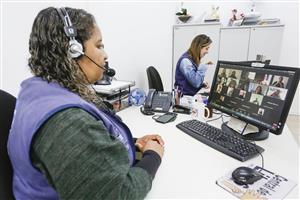
A city organizing weekly conversations in public spaces with citizens in sign language
To support the dissemination of the Brazilian sign language Libras, the city of Curitiba created Conversation in Libras launched the Conversation in Libras programme, offering weekly face-to-face meetings in its public spaces that improve the interaction and communication in Libras, the Brazilian sign language.
Curitiba City Hall, Conversation in Libras, Brazil -
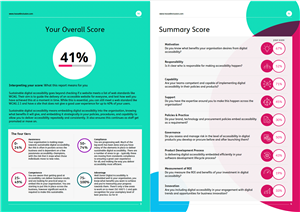
Digital Accessibility Maturity Scorecard for companies
Hassell Inclusion, a London-based digital accessibility consultancy, developed the Digital Accessibility Maturity Scorecard in 2020. It enables organizations to assess their digital accessibility performance against nine dimensions based on the principles of the ISO 30071 code.
Hassell Inclusion Ltd., Scorecard for companies to self-assess their current practices in digital accessibility, United Kingdom -
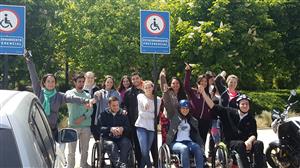
Planning and building accessible cities, simplified
In 2002 CCA began to publish graphic accessibility guides in the form of leaflets called "Accessible Thematic Files." By 2017, 13 Files have been published, supporting municipalities, planning institutions, and the public with the aim of accelerating the planning of accessible environments, buildings, and towns.
Corporación Ciudad Accesible, Graphic Accessibility Guides, Chile -
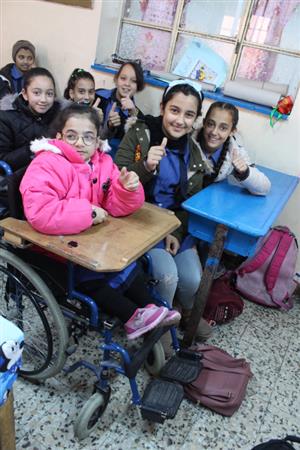
One-year preparation programme for children with disabilities to enter mainstream schools
The programme includes services such as occupational therapy, assistive technology, and support from special education specialists, along with the creation of individual education plans. The services are designed to help children to prepare for and pass the entrance exam to be admitted into grade 1 of mainstream schools in Jordan.
Al Hussein Society - Jordan Center for Training & Inclusion, School Preparation Programme, Jordan -
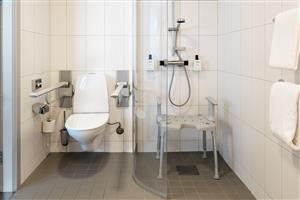
Comprehensive hotel accessibility strategy
The strategy includes training courses for all hotel staff, a dedicated Accessibility Director, and a 135-point checklist of accessibility features. This "Accessibility Standard" was drawn up by following the route taken by guests from the car park and through the hotel, and with input from guests, disability organizations, and hotel staff.
Scandic Hotels, Sweden
- Page 1
- Page 2
- Page 3
- Page 4
- Page 5
- Page 6
- Page 7
- Page 8
- Page 9
- Page 10
- Page 11
- Page 12
- Page 13
- Page 14
- Page 15
- Page 16
- Page 17
- Page 18
- Page 19
- Page 20
- Page 21
- Page 22
- Page 23
- Page 24
- Page 25
- Page 26
- Page 27
- Page 28
- Page 29
- Page 30
- Page 31
- Page 32
- Page 33
- Page 34
- Page 35
- Page 36
- Page 37
- Page 38
- Page 39
- Page 40
- Page 41
- Page 42
- Page 43
- Page 44
- Page 45
- Page 46
- Page 47
- Page 48
- Page 49
- Page 50
- Page 51
- Page 52
- Page 53
- Page 54
- Page 55
- Page 56
- Page 57
- Page 58
- Page 59
- Page 60
- Page 61
- Page 62
- Page 63
- Page 64
- Page 65
- Page 66
- Page 67
- Page 68
- Page 69
- Page 70
- Page 71
- Page 72
- Page 73
- Page 74
- Page 75
- Page 76
- Page 77
- Page 78
- Page 79
- Page 80
- Page 81
- Page 82
- Page 83
- Page 84
- Page 85
- Page 86
- Page 87
- Page 88
- Page 89